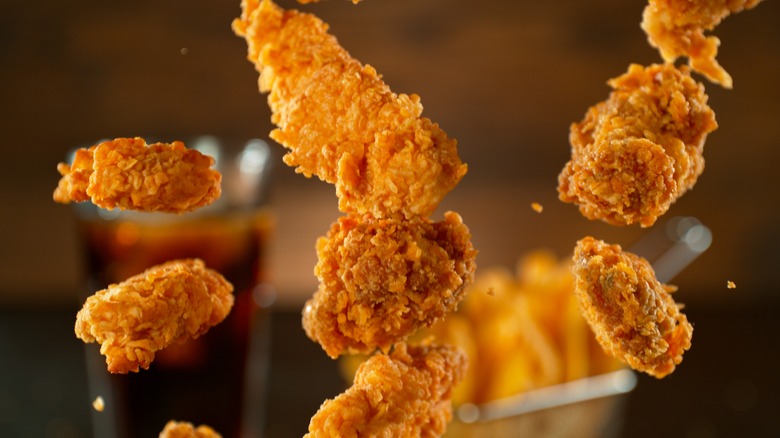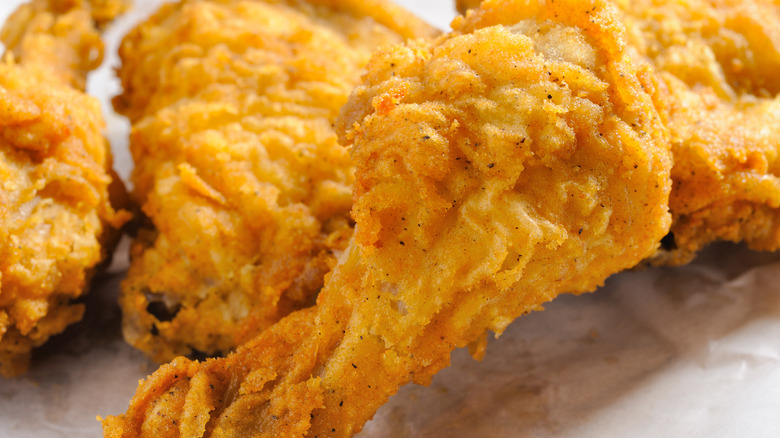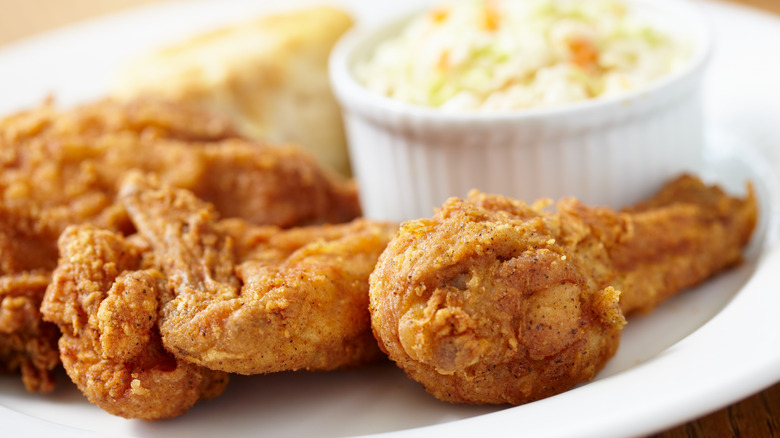Chef Tips For Restaurant-Quality Fried Chicken At Home
Fried chicken is one of the greatest pleasures food has to offer. There's a reason it's one of America's chief exports around the globe, second only to hamburgers (and even that's debatable) for global renown. We're at the point where other cuisines have even begun putting their own delicious spins on fried chicken — including Korea, which honestly might have surpassed us at this point. It's a dish that's unique and customizable enough to always be interesting, while still being incredibly affordable. And you can make fried chicken at home; heck, people have been doing it for centuries now.
That being said, fried chicken at home comes with its challenges. Thankfully, professional chefs have advice to offer on this very subject — professional chefs like Bob Bennett of Zingerman's Roadhouse in Ann Arbor, Michigan. Bennett's advice for homemade fried chicken comes down to two main things: Time and equipment. Taking your time and using the right tools is the best way to get restaurant-quality fried chicken in the comfort of your own home.
If you don't have a fryer, a cast iron pan is best
There are plenty of tips to be aware of when it comes to fried chicken; things like always frying in order of largest to smallest piece, swapping egg wash for mayo, and using a small amount of liquid in your flour. Bob Bennett's advice goes beyond that and gets back to basics.
The reason commercial kitchens can output so much food so efficiently is that they have access to industrial-grade deep fryers. While you can certainly fry chicken in a pan, it won't come out as evenly as if you're using professional equipment. True, home deep fryers are now available when they weren't previously, and that's the best option. But if you don't have access to a specific fryer, Bennett's advice is to rely on a cast iron pan or Dutch oven. "Ideally you have a 20-gallon commercial fryer, but I am guessing most folks don't," Bennett says. "[Cast iron and Dutch ovens] hold the heat really well for fried foods."
It's important not to rush the process
But the most important ingredient, according to Bob Bennett, is time. "While commercially fried chicken is kind of made for fast food, at home there really isn't the space or equipment to rush it," he explains. "Also having the right tools like a thermometer and a good recipe makes a huge difference." This makes sense; time is often considered one of the most important cooking ingredients, and taking your time where possible generally assures the best possible dinner. Why would frying chicken be any different?
And while you can choose any cut for your fried chicken, Bennett's choice would be thighs; though that's certainly not your only option. "A nice boneless breast works well too," he says.
Ultimately, the best tips for preparing fried chicken all come back to simplicity and respecting the ingredients. Go slowly, use the right equipment, and use the right cuts of chicken and it will turn out great.


